Carl Schmitt and Leo Strauss in the Chinese-Speaking World
Carl Schmitt and Leo Strauss in the Chinese-Speaking World
Reorienting the Political
Edited by
Kai Marchal and Carl K. Y. Shaw
LEXINGTON BOOKS
Lanham Boulder New York London
Published by Lexington Books
An imprint of The Rowman & Littlefield Publishing Group, Inc.
4501 Forbes Boulevard, Suite 200, Lanham, Maryland 20706
www.rowman.com
Unit A, Whitacre Mews, 26-34 Stannary Street, London SE11 4AB
For the cover photos: Carl Schmitt, Carl-Schmitt-Gesellschaft e.V.; Leo Strauss, courtesy of Jenny Strauss Clay.
Copyright 2017 by Lexington Books
All rights reserved . No part of this book may be reproduced in any form or by any electronic or mechanical means, including information storage and retrieval systems, without written permission from the publisher, except by a reviewer who may quote passages in a review.
British Library Cataloguing in Publication Information Available
Library of Congress Cataloging-in-Publication Data
Names: Marchal, Kai, editor. | Shaw, Carl K. Y., 1961- editor.
Title: Carl Schmitt and Leo Strauss in the Chinese-speaking world : reorienting the political/[edited by] by Kai Marchal and Carl K.Y. Shaw.
Description: Lanham : Lexington Books, [2016] | Includes bibliographical references and index.
Identifiers: LCCN 2016050832 (print) | LCCN 2017000751 (ebook) | ISBN 9781498536264 (cloth : alk. paper) | ISBN 9781498536271 (Electronic)
Subjects: LCSH: Schmitt, Carl, 1888-1985Political and social views. | Strauss, LeoPolitical and social views. | Schmitt, Carl, 1888-1985Influence. | Strauss, LeoInfluence. | Political scienceChinaPhilosophy. | Political scienceTaiwanPhilosophy.
Classification: LCC JC263.S34 C38 2016 (print) | LCC JC263.S34 (ebook) | DDC 320.0951dc23
LC record available at https://lccn.loc.gov/2016050832
 The paper used in this publication meets the minimum requirements of American National Standard for Information SciencesPermanence of Paper for Printed Library Materials, ANSI/NISO Z39.48-1992.
The paper used in this publication meets the minimum requirements of American National Standard for Information SciencesPermanence of Paper for Printed Library Materials, ANSI/NISO Z39.48-1992.
Printed in the United States of America
Contents
Kai Marchal and Carl K. Y. Shaw
Harald Bluhm
Carl K. Y. Shaw
Thomas Frhlich
Mario Wenning
Charlotte Kroll
Han Liu
Shu-Perng Hwang
Christopher Nadon
Kai Marchal
Jianhong Chen
Kuan-Min Huang
Chuan-Wei Hu
This volume is the result of the International Conference on Political Philosophies across National Contexts: Carl Schmitt and Leo Strauss in the Sinophone World, organized by and held at the Center for Political Thought, Research Center for Humanities and Social Sciences at the Academia Sinica in September 2014. Apart from Charlotte Krolls contribution, all chapters collected in this volume were presented at that conference, though Kroll also participated in the conference and acted as a discussant.
We would like to express our appreciation to the Academia Sinica and the Ministry of Science and Technology, Taiwan, ROC, for their generous financial support of the conference. We are also indebted to Heinrich Meier who, though unable to attend our conference in persona , wrote a splendid Grusswort in German to express his philosophical support for our trans-cultural endeavour and offered his personal perspective on this issue. Many colleagues partook in the conference in various capacities or provided helpful advice for the organization of our volume and deserve to be mentioned here: Stephen C. Angle, Tongdong Bai , Kang Chan , Hans Feger, Fabian Heubel, Ethan Kleinberg, Qing Liu , David J. Lorenzo, Christoph Menke, Eske Mllgaard, Robert B. Pippin, Christoph Thonfeld, and Ying-wen Tsai . All the chapters going back to the conference have undergone substantial revision; we are indebted to Christopher Reid, PhD, and Kent Suarez for meticulous English editing, as well as to Fu-to Chiang for her painstaking work of reformatting the manuscripts and editing the references.
Kai Marchal and Carl K. Y. Shaw
The history of globalization is almost as old as history itself. Yet we are witnessing a distinctively new phenomenon today, almost thirty years after the end of the Cold War: the economic, political, and cultural domination enjoyed by the West for several centuries over the rest of the world seems to be coming to an end. Our present is characterized by a number of profound transformations, such as the global dissemination of digital technology, the biotechnological revolution, and immense socioeconomic changes. We have, nonetheless, reason to believe that the increased questioning of the supremacy of the West might be as dramatic as any of these. If current trends continue, the shifting of the economic center of gravity from North America and Europe to other parts of the world (especially East Asia) may result in even more radical social and cultural transformations and possibly lead to a new form of modernity, one that is global as well as polycentric. In such a future, non-liberal political regimes and alternative forms of capitalism and social organization will coexist, as non-Western forms of life and world views assert themselves in increasingly self-conscious, but also fragmented ways. It can be expected that these geopolitical shifts of power and influence will introduce a new sense of indeterminacy in Western politics, but also in Western self-descriptions and cultural visions more generally.
It is unclear whether political thinking in the West is poised to address such a post-Western global order. Influenced by thinkers like Immanuel Kant and John Rawls, political theory in the Western academia is often understood as a highly abstract inquiry into the normative requirements of a just and well-ordered society. Many contemporary political theorists are convinced that they need to develop an ideal theory of rights and justice that all rational agents across national borders and cultural spheres will recognize. However, it has been contended that these normative theorists are unwilling to think through the problems of historical contingency, stability, power, and, more generally, the challenge of real politics; and that this form of theorizing, in our fast-changing world, might actually be overly conservative (Geuss 2008). Even inside the mainstream of political theorizing in the Anglo-American world, there is a growing awareness of the limits of such normative political theorizing that often seems to reduce thinking about politics to thinking about questions of applied ethics (Williams 2005; Nussbaum 2007; Sen 2009).
Moreover, scholars in the fields of poststructuralism, postcolonial studies, cultural studies, global history, and in so-called Area Studies have been challenging the universality of numerous Western categories and concepts, that are still central to contemporary inquiries into politics (e.g., Bhabha 2004; Spivak 1999; Chakrabarty 2007; Chow 2002; Conrad 2012; Allen 2015). Many are aware of the very parochialism of theoretical perspectives that are exclusively based on Western experiences and on a rather narrow array of canonical texts; however, this does not imply that Western political philosophers or political theorists are willing to engage with non-Western experiences, concepts, traditions, or modes of inquiry. Instead, often it is the same old story: Europe quietly claims universalismor, perhaps, claims it with such unembarrassed volume that nowhere else can be heard (Goto-Jones 2010, 223). And yet, how could one not recognize the signs of the future when the process of political and economic decision-making in Europe is increasingly influenced by countries like India, China, or Russia? It is difficult to see how political theorists could continue pretending for much longer that the non-Western world cannot contribute anything in their project of thinking through major issues of political theory. In fact, a growing number of scholars have challenged the disciplinary consensus by establishing a new field of comparative political theory and by thus putting new issues onto the agendas of major research programs (see Dallmayr 1996; Bell 2006; Godrej 2011; Angle 2012; and Jenco 2015; for similar attempts in other languages see Zapf 2012; and Schemeil 2015).
Next page
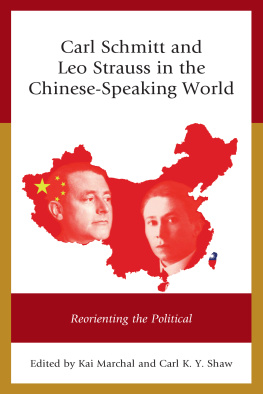

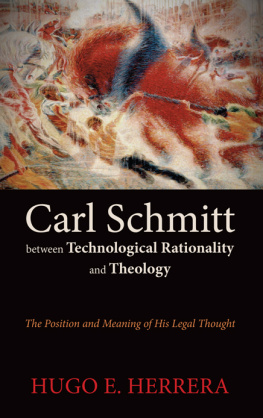
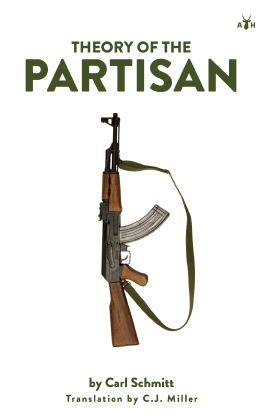
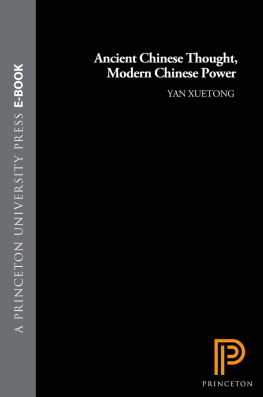
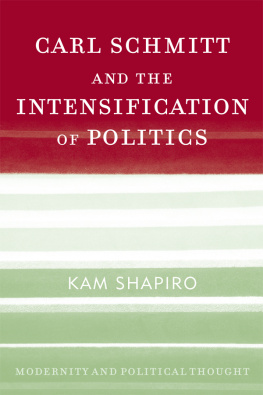
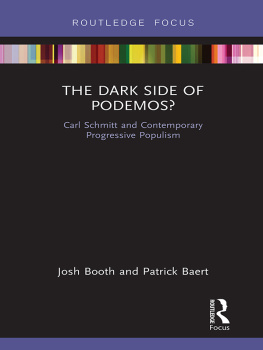
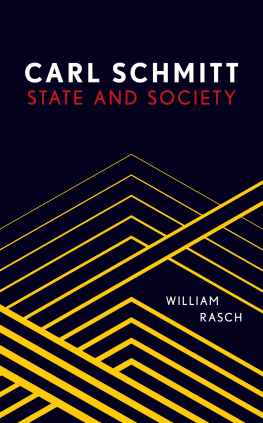
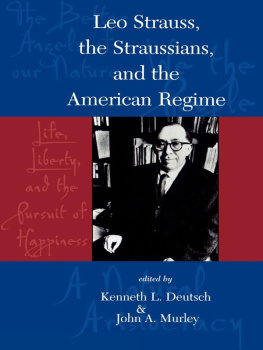
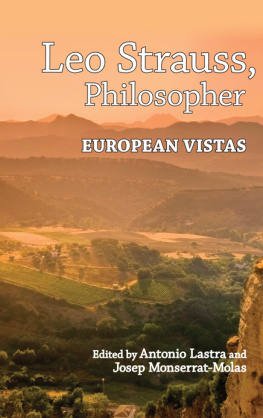
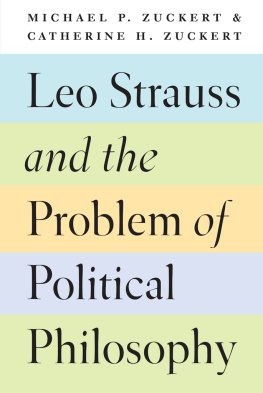
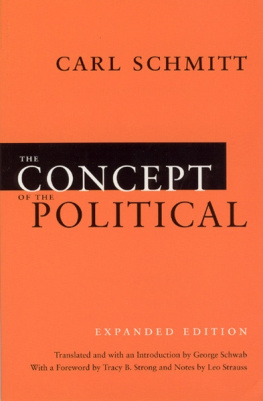
 The paper used in this publication meets the minimum requirements of American National Standard for Information SciencesPermanence of Paper for Printed Library Materials, ANSI/NISO Z39.48-1992.
The paper used in this publication meets the minimum requirements of American National Standard for Information SciencesPermanence of Paper for Printed Library Materials, ANSI/NISO Z39.48-1992.